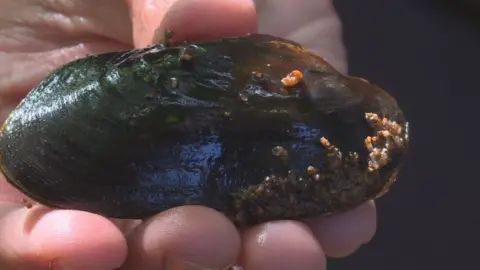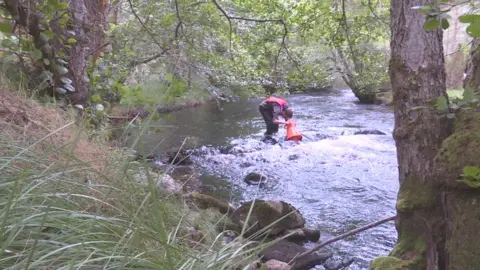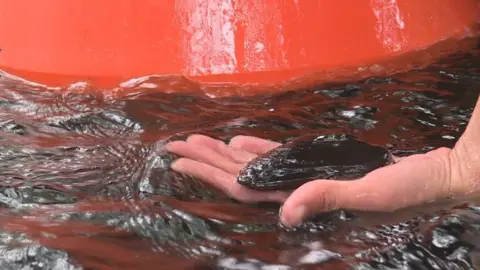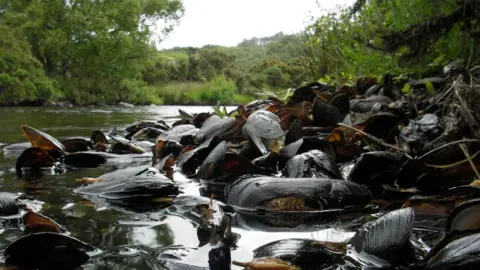New freshwater pearl mussel population found in River Spey tributary
 BBC
BBCA new population of critically endangered freshwater pearl mussels has been found on a River Spey tributary.
They were found by a graduate on a Scottish Natural Heritage (SNH) placement scheme who had been looking for suitable sites to reintroduce them.
Although small, the population contains juveniles which indicates the molluscs have been successfully breeding.
The exact location is being kept secret following recent incidents involving illegal poaching.


Kieran Leigh-Moy, who made the discovery, said: "I'd already identified this river as potentially having good quality habitat, so was visiting the site to conduct more in-depth surveys to see if it would be a suitable site for a reintroduction, but was stunned to find juvenile freshwater pearl mussels already there.
"It's really rare to find a new population of these mussels, and especially one that is breeding successfully, so it was a really exciting moment.
"What's particularly significant is that the juvenile mussels found were many miles away from the nearest known breeding population and that's good news because it could help to prevent further range contraction of the species."
 Scottish Natural Heritage
Scottish Natural HeritageFreshwater pearl mussels can live for 280 years but have been declining across the world for many decades.
They can be very sensitive to pollution and efforts have been under way in Scotland to improve water conditions for those which remain.
Fishing for the pearls, which are found in very few mussels, have also had an impact even though the practice is now illegal.
Some of the conservation work has involved shading rivers with trees to keep down the water temperature.
Giles Brockman from Forestry and Land Scotland, said: "This is really exciting news. Forest management is not just about trees and this is a strong indication that actions to protect water courses are effective and can help to sustain and nurture wildlife and rare species."
